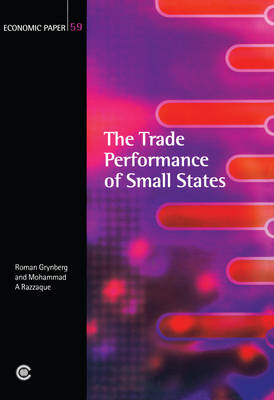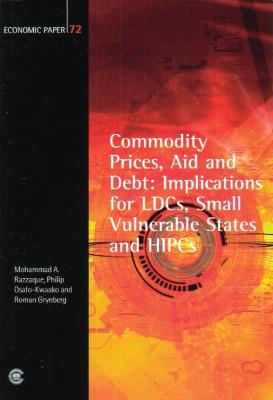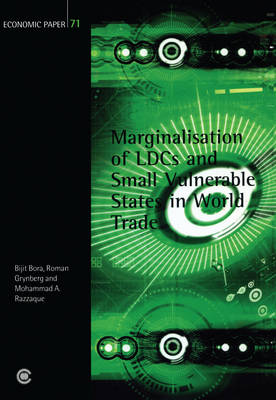Economic Paper
3 total works
The Trade Performance of Small States
by Roman Grynberg and Mohammad A. Razzaque
Published 1 March 2004
This paper analyses the trends in the relative significance of small states in world trade, and looks at the reasons for their marginalisation. It advocates that dependence on primary products and increasing globalisation explain much of the trend in the declining significance of small states, but that there are four other key factors: the structure of the export trade; the unfavourable geographical positions of many small states; their lack of financial resources; the global trade regime under the WTO.
Commodity Prices, Aid and Debt
by Mohammad A. Razzaque, Philip Osafo-Kwaako, and Roman Grynberg
Published 1 January 2004
This study reveals the extent of persistent downward trends in commodity prices on least developed countries (LDCs), small vulnerable states (SVSs) and heavily indebted countries (HIPCs) and proposes a Joint Diversification Scheme exclusively for export diversification schemes in the commodity-dependent poor countries. The report also proposes and outlines the establishment of a Joint Diversification Fund, in addition to regular aid flows as a long-term solution.
Marginalisation of LDCs and Small Vulnerable States in World Trade
by Bijit Bora, Roman Grynberg, and Mohammed A. Razzaque
Published 1 January 2004
There are indisputable concerns over the ineffective participation of Least-Developed Countries (LDCs) and Small Vulnerable Economies (SVEs) in the process of global integration, and their failure to derive benefits from the ongoing process of trade liberalisation and globalisation. The present paper explains the theme of 'marginalisation' of Least-Developed Countries (LDCs) and Small Vulnerable Economies (SVEs) in the international trade arena, in terms of their declining relative importance in world trade. Statistical analysis is used to determine the long-term declining share of LDCs and SVEs in world merchandise exports. The study argues that the process of marginalisation of these countries is mostly the result of the failure of LDCs and SVS to diversify from their static comparative advantage related to the production of primary products, the significance of which in world trade has declined considerably during the past decades. The analysis emphasises the need for diversification of exports and an expansion of the manufacturing export base in these countries.


